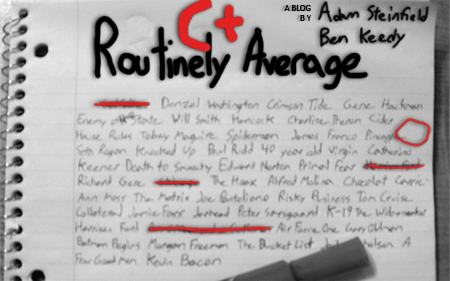The story, loosely based on actual events, begins with a series of riots in the streets of Paris involving the burning of cars and public buildings. The unrest breaks out after an Arab student, named Abdel, is beaten into a coma by the police. Shot in black and white and told in a one-day period, the film follows a group of three friends: Hubert (Hubert Koundé), who is Black, Saïd (Saïd Taghmaoui), who is Arab, and Vinz (Vincent Cassel), who is Jewish. They are from immigrant families living in a volatile housing project in an outer suburb of Paris. Deprived of a healthy community and alienated by a self-involved society, the young outcasts form a family among themselves. Their ethnic backgrounds is not important to them; they are united against "the system".
Vinz is a hot-tempered guy with a huge authority problem and a deep hatred of the police. He fantasizes about being a gangster, and does impressions of Robert de Niro in Taxi Driver in front of his bathroom mirror. During the riot, Vinz finds a policeman's gun, lost in the chaos. He vows to use the gun to kill a cop, should his friend Abdel die. Saïd, on the other hand, is good-natured, sensible and calm; he seems unwilling to acknowledge the problems of his surroundings. The most mature and most thoughtful of the three is Hubert, an aspiring boxer who wishes to leave this decadent world behind him.
The film uses a repeated metaphor comparing life in urban Paris to someone jumping off a building. With each passing floor, the jumper thinks that up until now, everything is okay. Then he hits bottom. This embodies the ultimate doom that the protagonists face, since there is very little hope of escaping life in the banlieue.
Vinz, Saïd and Hubert are not criminals but because of their appearance, they are treated that way by the police and they are discriminated against continuously by society. During the course of less than 24 hours, they wander the streets filled with rage and find themselves in one troublesome situation after another. In one scene, Hubert and Saïd are interrogated by policemen who intimidate and humiliate them by using choke holds and racial slurs. Later on, the trio gets into a scuffle with a group of racist anti-immigrant skinheads. Vinz shows the skinheads his gun, and all but one, played by the director Mathieu Kassovitz, escape. Vinz is ready to kill but he does not go through with his intention. The young men are able to keep their cool and to not act stupidly, but it is only a matter of time until heartbreak strikes.
Evidently, Kassovitz sees everything in black and white. On one side, there is the bigots and bullies, on the other, defenseless minorities. However, La Haine does not ask us to sympathize with the protagonists. It invites us instead to face up to the social challenges of our time in order to avoid violence and tragedy. It is interesting how this film reflects our own problems of race and class division here in America. Its setting would translate perfectly to any US inner-city.
26/30
Evidently, Kassovitz sees everything in black and white. On one side, there is the bigots and bullies, on the other, defenseless minorities. However, La Haine does not ask us to sympathize with the protagonists. It invites us instead to face up to the social challenges of our time in order to avoid violence and tragedy. It is interesting how this film reflects our own problems of race and class division here in America. Its setting would translate perfectly to any US inner-city.
26/30




This blog is really getting international. Great stuff Chris. I've always liked Vincent Cassel. I'm hoping for the chance to get to see Mesrine as some point.
ReplyDeleteAlso, Chris you are not putting ratings up on your movies. Until you add one I can't throw it up on our big board of subjectivity. Come on, give in to systemic simplification.
ReplyDeleteWow! This sounds incredible! Michael, bring it home from Video to Go. It's a pretty safe bet CJ won't have it.
ReplyDeleteThanks Chris.
Susan/Mom